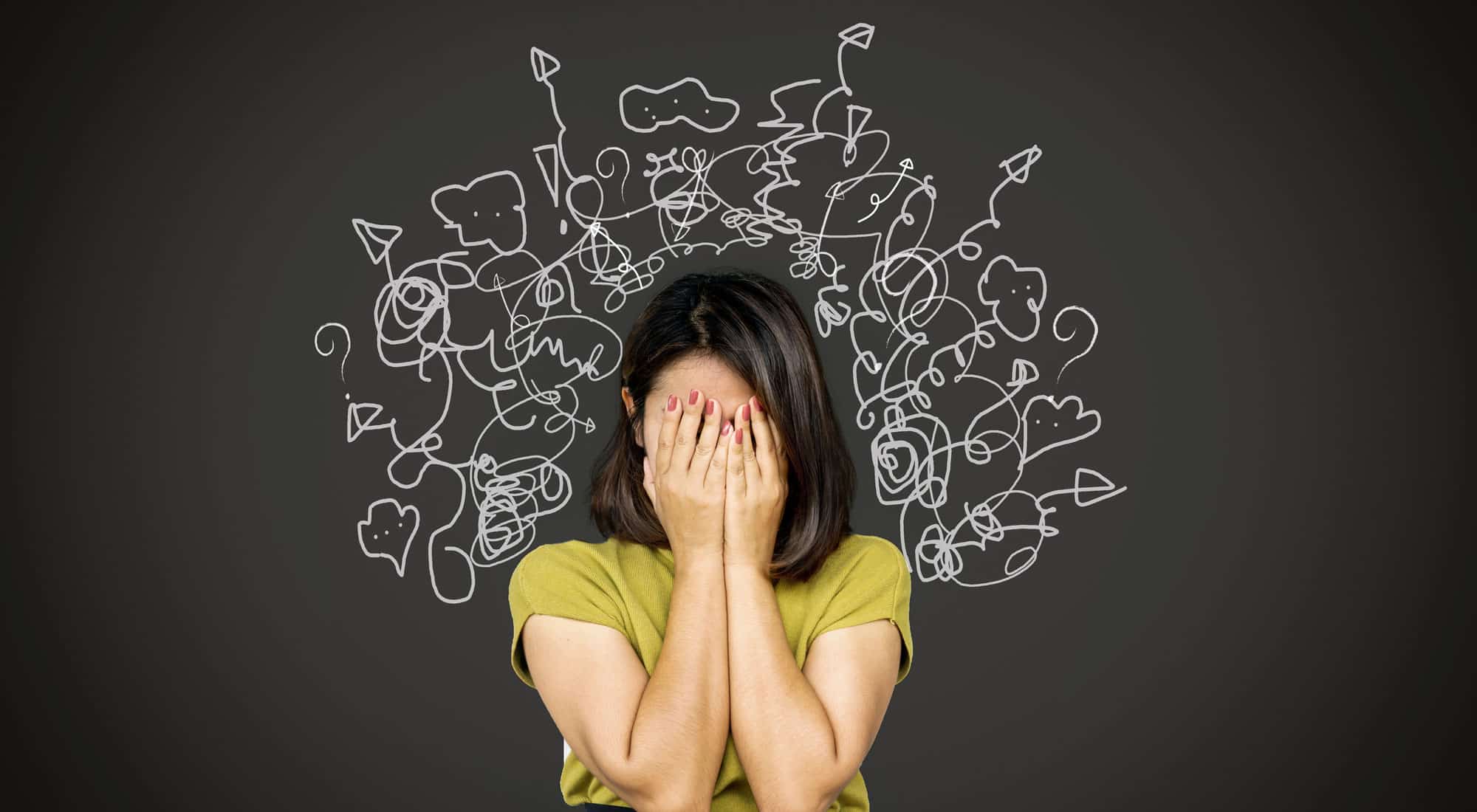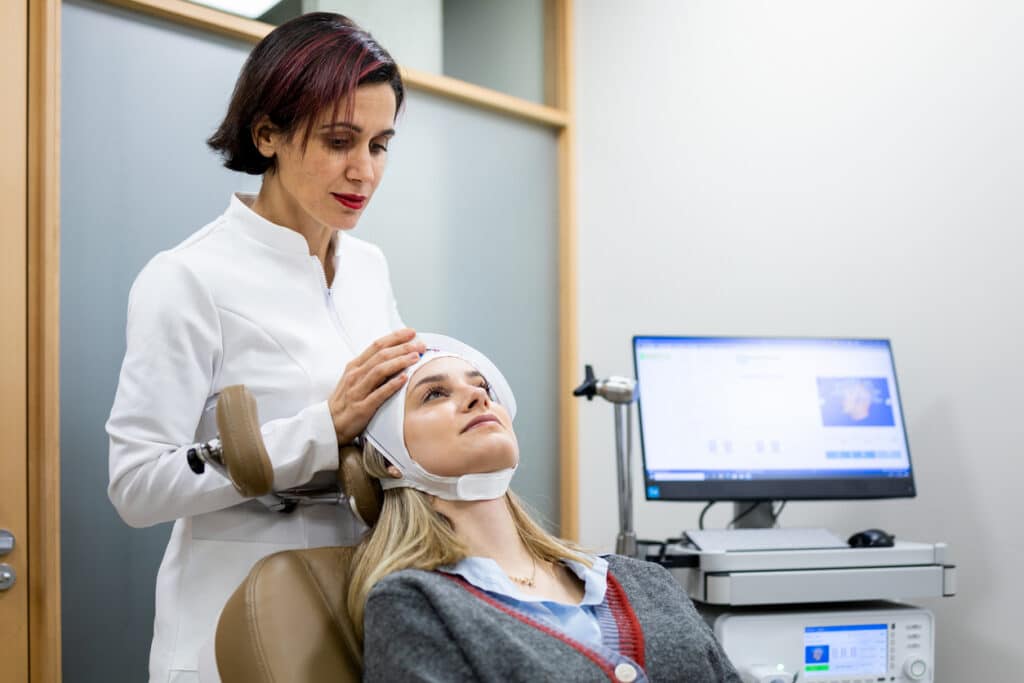If you or a loved one experiences a lot of changes in mood or has trouble managing emotions, you may be dealing with emotional dysregulation. Emotional dysregulation can make everyday life feel like a constant emotional rollercoaster, with intense mood swings and unpredictable reactions that are hard to control.
If you or someone you know struggles with this, it can impact everything from work to relationships and overall well-being. The good news is, emotional dysregulation is treatable, and with the right support, it’s possible to find balance and regain control over your emotions.
In this post, we’ll explore what emotional dysregulation is, how it shows up in real life, and the strategies that can help you manage and cope with these overwhelming feelings.
What Is Emotional Dysregulation?
Emotional dysregulation is when someone has trouble managing their emotions, which can cause intense mood swings and reactions that feel out of control. This can make it harder to deal with stress or navigate everyday situations. If you or someone you know struggles with emotional dysregulation, it may show up in different ways, from feeling overwhelmed by emotions to making decisions in the heat of the moment.

What Causes Emotional Dysregulation?
We aren’t all the same. We have different brains, different chemical makeups, and different life experiences. All of these contribute to our mental and physical health. You may be genetically and biologically more sensitive to emotions, or you may develop a dysregulated nervous system over time — especially if you experienced trauma during childhood.
There is nothing wrong with being more sensitive or having bigger emotions than others, but when these emotions are invalidated throughout life or when they are complicated by other mental health concerns, problematic patterns and dysregulation can occur.
Emotional Dysregulation Symptoms
Emotional dysregulation goes beyond occasional moodiness; it’s when emotions feel out of control and impact your daily life. This can make everything from work to relationships harder to navigate, and often leads to intense emotional reactions that don’t seem to match the situation.
These symptoms can show up in a variety of ways, but understanding them is the first step in learning how to manage them. Here’s what emotional dysregulation can look like in real life:
Mood Swings
One of the main signs of emotional dysregulation is sudden, intense mood swings. A person might feel perfectly fine one moment, only to be overwhelmed with anger, sadness, or excitement the next. These swings can happen quickly and unpredictably, making it hard for the person to keep their emotions in check.
For example, someone might go from feeling cheerful to upset over a small inconvenience, leaving them and those around them confused about what triggered the change. These mood shifts can make it difficult to maintain relationships or stay focused on daily tasks.
Frequent Anger, Frustration, or Irritation
People with emotional dysregulation often feel angry or frustrated much more often than others. This might show up as snapping at others for little reasons or feeling irritated when things don’t go as planned.
For example, you might be sitting at work and, even though nothing major happens, find yourself feeling short-tempered or getting upset over small things. This constant frustration can be draining and lead to conflict with others, making it tough to manage stress and emotions in a healthy way.
Impulsive Choices or Actions
Another sign of emotional dysregulation is acting impulsively, without considering the consequences. This could look like making snap decisions that later feel regrettable, such as spending money you don’t have or saying things you don’t mean during an argument.
The need to quickly relieve emotional discomfort can lead to these impulsive actions, which often make the situation worse instead of better. Over time, impulsivity can lead to more problems, from damaged relationships to making choices that hurt your long-term well-being.

Depression
Another common symptom of emotional dysregulation is depression. When emotions are out of control, it can lead to feelings of sadness or hopelessness. For instance, someone might experience a wave of sadness that lasts for days, affecting their ability to enjoy things they usually love.
The constant emotional turmoil can leave a person feeling drained and unmotivated, making it harder to move forward with daily tasks or even get out of bed some days. The emotional rollercoaster can contribute to feelings of being stuck or unable to change things, deepening feelings of depression.
Anxiety
Emotional dysregulation often goes hand-in-hand with anxiety. People may feel anxious about situations, even if there’s no obvious reason to be, and this anxiety can feel overwhelming. For example, you might find yourself feeling constantly on edge or worried about things that don’t seem to require much thought.
The anxious feelings are often tied to difficulty managing emotions and can spiral into bigger fears or concerns. Over time, this anxiety can make it hard to relax or engage in activities without worrying about what could go wrong.
Substance Use
In an attempt to manage overwhelming emotions, some people turn to substances like alcohol, drugs, or food to numb their feelings. This is a form of self-medication that can offer temporary relief but often makes things worse in the long run.
For example, someone might drink to calm down after a stressful day, only to find that their problems still exist the next day, along with a hangover. Substance use can become a pattern as a way to cope with emotional distress, but it doesn’t solve the underlying issue of emotional dysregulation.
Behavioral Addictions
People with emotional dysregulation may also struggle with behavioral addictions, like gambling, shopping, or even excessive screen time. These activities provide a quick fix for emotional discomfort, but over time, they can become harmful.
For instance, someone might spend money impulsively to feel better in the moment, but this only creates more stress later on. Behavioral addictions can feel like a way to escape from negative emotions, but they often make things worse by creating new problems that are harder to manage.

Emotional Dysregulation Treatment
Treating emotional dysregulation often involves a combination of therapy, self-care strategies, and sometimes medication. The goal of treatment is to help people gain better control over their emotions, reduce impulsive behaviors, and improve their overall quality of life. Here are some effective treatments that can help manage emotional dysregulation:
Cognitive Behavioral Therapy (CBT)
CBT is one of the most common and effective treatments for emotional dysregulation. It teaches you how to identify negative thought patterns that fuel emotional reactions and how to replace those patterns with healthier ways of thinking. For example, if someone struggles with intense anger, CBT helps them recognize the triggers and underlying thoughts, like feeling unfairly treated, and work on replacing those thoughts with more balanced, calm perspectives. Over time, this process helps reduce emotional outbursts and better manage reactions to stressful situations.
Dialectical Behavior Therapy (DBT)
DBT is another highly effective treatment for emotional dysregulation, especially for those who experience intense emotional swings. DBT combines CBT with mindfulness and skills training, helping patients accept their emotions while learning new ways to manage them. DBT focuses on teaching skills like emotional regulation, distress tolerance, and interpersonal effectiveness.
For example, a person might learn how to pause and breathe when feeling overwhelmed or use grounding techniques when feeling detached. These skills help people respond more thoughtfully rather than reacting impulsively. DBT is particularly useful for those who experience extreme mood swings or have difficulty managing relationships.
Medication
In some cases, medication may be used alongside therapy to help manage the symptoms of emotional dysregulation. Antidepressants, mood stabilizers, or anti-anxiety medications can help regulate mood and reduce feelings of emotional overwhelm.
However, medication is typically most effective when used as part of a broader treatment plan, which includes therapy and lifestyle changes. A doctor or psychiatrist will work with you to find the right medication, dosage, and approach that works best for them.

Mindfulness and Meditation
Mindfulness practices, including meditation, can also help manage emotional dysregulation. These techniques teach you to stay present in the moment, reduce impulsive reactions, and improve emotional awareness. By learning to pause before reacting, you can make more conscious decisions and better control their emotional responses. Regular mindfulness practice can help reduce anxiety, anger, and impulsivity by calming the mind and increasing emotional resilience over time.
Lifestyle Changes
Lifestyle changes can support emotional regulation in addition to therapy. Regular exercise, a healthy diet, and good sleep hygiene are all important for managing emotions. Physical activity can help release pent-up stress and improve mood, while a balanced diet can help regulate brain chemistry. Getting enough sleep is also crucial, as emotional dysregulation is often worsened by sleep deprivation.
Take Control of Your Emotional Health
Here at The Meadows, we offer comprehensive, personalized treatment plans that include these and other proven, evidence-based modalities for mental health and recovery. Contact us today to learn more about finding health, healing, and balance.
More emotional dysregulation FAQs
Here are some additional common questions and answers to help you fully understand emotional dysregulation.
How can emotional dysregulation be diagnosed?
Emotional dysregulation is typically diagnosed by a mental health professional through interviews, behavioral assessments, or questionnaires. The professional examines how emotions affect day-to-day life, relationships, and decision-making to understand how frequently and intensely you experience emotional shifts that feel out of control, and how they impact your overall functioning.
Is emotional dysregulation the same as mood swings?
While mood swings are a part of emotional dysregulation, the two aren’t quite the same. Emotional dysregulation involves stronger, more intense emotional reactions that are hard to manage and seem disproportionate to the situation. It can make everyday life feel unpredictable, leading to challenges in relationships, work, or personal well-being.
How can emotional dysregulation be treated?
Treatment for emotional dysregulation usually focuses on therapy, with approaches like Dialectical Behavior Therapy (DBT) or Cognitive Behavioral Therapy (CBT). These therapies help individuals develop skills for managing their emotions and creating healthier coping mechanisms. Medication may also be used if there are underlying issues like anxiety or depression.
Can emotional dysregulation be caused by trauma?
Yes, trauma, especially if it’s prolonged (which is known as complex trauma) or experienced in childhood, can contribute to emotional dysregulation. Whether it stems from physical, mental, emotional, or sexual abuse, experiencing emotional trauma can cause a person’s nervous system to become hyper-sensitive, making it harder to manage emotions and triggers later in life.
Is emotional dysregulation linked to mental health conditions?
Emotional dysregulation is often seen in mental health conditions like Borderline Personality Disorder (BPD), anxiety, depression, and PTSD. It’s a common symptom of these disorders, meaning that treating the underlying condition is essential for improving emotional regulation. Effective treatment can help reduce the intensity and frequency of emotional episodes.



